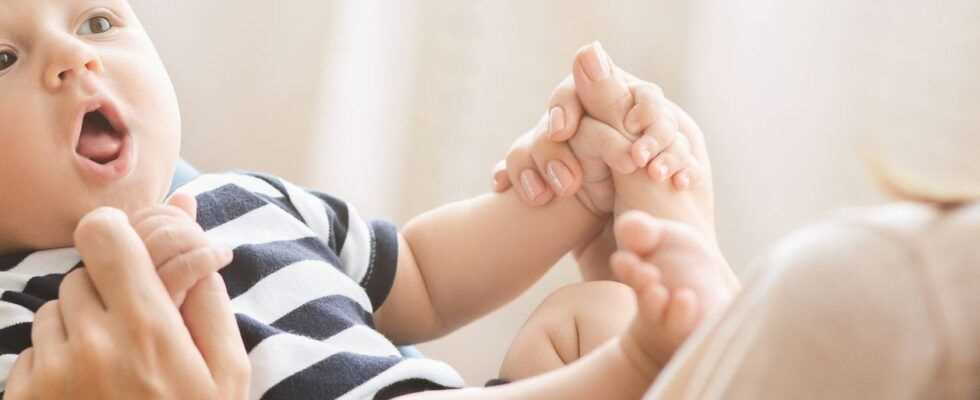Although it is sometimes worrying for young parents, hiccups are quite common in babies. What are the causes ? How to react ? And when should you consult?
Why does baby have hiccups?
After having eaten, many babies are shaken by an attack of hiccups. For parents, the phenomenon can sometimes be worrying because the vibration is spread throughout the whole body. But what happens to your child's body when they have an attack of hiccups? In fact, hiccups are linked to the immaturity of a baby's digestive system. When he eats, his stomach fills with milk and expands. And as it dilates, it causes the phrenic nerve to stretch, which will "overreact" somewhat. The phrenic nerve controls the diaphragm, a muscle located between the thorax and abdomen which then begins to generate spasmodic contractions involuntarily and suddenly. This contraction in turn causes a vibration of the vocal cords. After each spasm, the glottis closes abruptly, resulting in a throaty sound ("hic") very characteristic of hiccups.
Breastfeeding or bottle-feeding: does feeding style have an impact on hiccups?
Breastfed babies usually feed more times during the day, which in turn reduces the volume of milk ingested with each feed. In addition, breastfed infants swallow less air than bottle-fed infants because of the pacifier. This has the effect of reducing the occurrence of hiccups during breastfeeding. However, this is not a hard and fast rule: if a baby is very gluttonous and can eat a large volume of milk quickly, he may well have an attack of hiccups even while on the breast.
Hiccups, is it painful?
Hiccups can be uncomfortable for a baby, but it is not painful (except in exceptional cases such as after thoracic surgery, note). Sometimes hiccup attacks greatly impress parents because they last 30 minutes or even 1 hour! But be aware that hiccups are very natural after birth. Indeed, the fetus can have crises in the womb of its mother from the twentieth week of pregnancy. He is therefore completely used to it and is not surprised by this feeling.
How to relieve baby's hiccups? Our advices
First of all, be aware that hiccups go away on their own, so a seizure shouldn't keep you from putting your baby to bed. No, baby don't risk choking! However, there are things you can do to prevent hiccups or to calm them down when baby seems upset during a prolonged attack.
If the seizures appear after eating, you can sequence them so as not to overfill the stomach pouch. If he takes the bottle, give him an intermediate burp during the intake. You can also choose a pacifier that does not have too much flow. After meals, do not hesitate to keep baby upright for several minutes (sitting against you, for example).
If the seizure is already on, hug your baby and try to calm him down by rocking him and gently patting his back. It is not uncommon for seizures to occur when a baby is very stimulated or after a big crying attack. So lower the pressure! Some mothers also give plain water, sweetened water or milk to calm the crisis. There are also homeopathic remedies for hiccups (HYOSCYAMUS 5 CH in trituration, a measure under the tongue after feeding or bottle-feeding). Another advice from grandmother: place a drop of lemon on the tip of baby's tongue.
When should you consult?
Hiccup attacks can occur after a meal or after regurgitation. This is called reflux, another common phenomenon in babies. As we said, hiccups are not harmful to your little one's health, but don't hesitate to talk to your pediatrician or general practitioner if you have the impression that your baby is bothered by chronic hiccups. , or that the reflux becomes too great.
